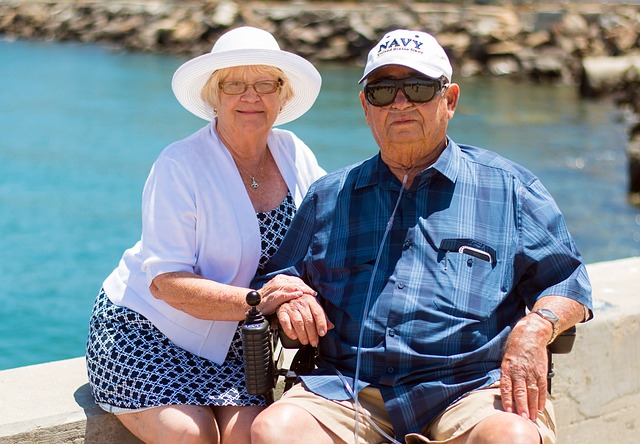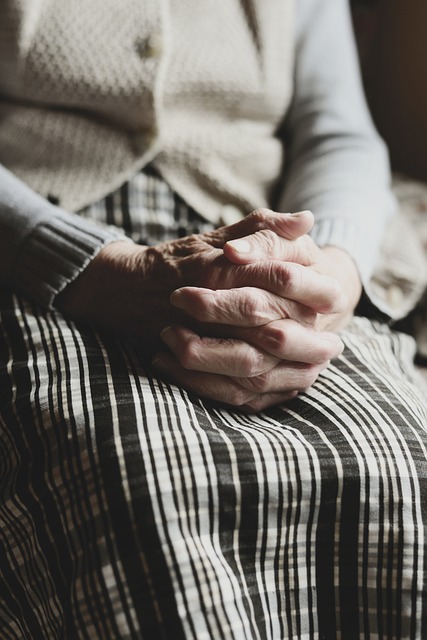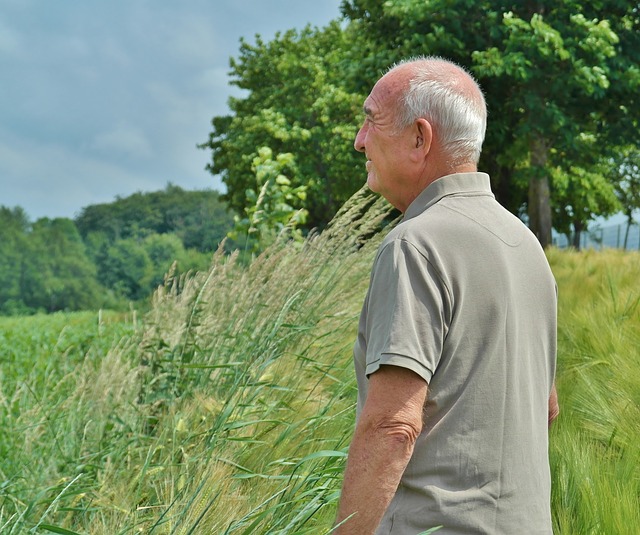Are you a senior or do you have an elderly loved one in your life? Have you ever wondered what are the safety considerations for seniors during emergency situations? It’s an important topic to discuss, as seniors may have unique needs and vulnerabilities that should be addressed in order to ensure their safety and well-being. In this article, we will delve into this topic in detail and provide you with valuable information and tips on how to best protect seniors during emergencies. So, if you want to learn more about this crucial subject, keep reading!
During emergency situations, such as natural disasters or power outages, it is essential to prioritize the safety of seniors. Firstly, it’s important to have a plan in place before an emergency occurs. This includes creating a communication plan and making sure that seniors have a way to contact their loved ones or emergency services if needed. Additionally, you should ensure that seniors have easy access to necessary supplies, such as medications, food, water, and flashlights.
Another important consideration is the physical environment.

Lastly, it’s important to keep in mind the emotional well-being of seniors during emergencies. They may experience fear, stress, or anxiety, and it’s important to provide them with emotional support and comfort. Check in on them regularly, listen to their concerns, and assure them that their safety is a priority.

Emergency situations that pose risks to seniors
Natural disasters
Natural disasters, such as hurricanes, earthquakes, floods, and tornadoes, can have a devastating impact on seniors. These events often lead to power outages, damage to infrastructure, and limited access to essential services. Seniors may face difficulty evacuating, finding shelter, and maintaining their health and well-being in such circumstances. Therefore, it is crucial for seniors and their caregivers to have a plan in place to deal with these situations.
Fires
Fires can occur unexpectedly and spread rapidly, putting seniors at risk. Many seniors may have limited mobility or physical disabilities, making it challenging for them to escape quickly. It is essential to have safety measures in place, such as working smoke detectors, fire extinguishers, and clear evacuation plans. Seniors should also be informed about fire safety practices and educated on how to prevent fires from occurring in their living spaces.
Medical emergencies
Medical emergencies, such as heart attacks, strokes, or falls, can occur at any time. These emergencies may require immediate medical attention, and seniors may need assistance in accessing medical help. Having a plan in place with emergency contact numbers, knowing the location of medical facilities, and ensuring the availability of necessary medications can help seniors receive timely medical assistance.
Physical safety measures for seniors
Ensuring accessibility of emergency exits
Seniors should ensure that their living spaces have accessible emergency exits in case of a fire or other emergency. This includes keeping doors and hallways clear of clutter, having accessible ramps or elevators in multi-story buildings, and ensuring that windows can be easily opened or used as alternative exits. Regular maintenance and testing of emergency exits are also important to ensure their functionality.
Arranging necessary aids for mobility
Seniors with mobility issues may require aids such as wheelchairs, walkers, canes, or stair lifts to move around safely. It is essential to have these aids readily available and in good working condition. Regular maintenance and accessibility audits of living spaces can help identify areas that need improvements to accommodate seniors with mobility challenges.
Securing loose items in the living space
During an emergency, loose items or decorations in the living space can become hazards. Seniors should secure shelves, wall hangings, and other objects that could fall and cause injuries during an earthquake or other natural disasters. Additionally, ensuring that heavy objects are placed at lower levels and that there are no tripping hazards can help prevent accidents during emergencies.
Communication strategies for seniors during emergencies
Emergency communication plan
Having an emergency communication plan is vital for seniors. This plan should include a list of emergency contact numbers, including family members, friends, neighbors, and healthcare providers. Seniors and their caregivers should discuss and rehearse the plan to ensure that it can be executed effectively during an emergency situation. It is also important to keep a written copy of the plan in an easily accessible location.
Using special devices for communication
Seniors with hearing or speech impairments can face communication challenges during emergencies. It is advisable to have specialized communication devices, such as hearing aids, hearing amplifiers, or communication boards readily available. These devices can help seniors communicate their needs and receive vital information during emergency situations.
Creating a network of emergency contacts
It is essential for seniors to have a network of emergency contacts who can check on them in times of crisis. This network could include neighbors, friends, or community organizations. Regular communication and coordination with these contacts can provide seniors with support and assistance during emergency situations.
Medical considerations for seniors in emergencies
Ensuring availability of medications
Many seniors rely on medications to manage their health conditions. It is crucial to have an adequate supply of medications on hand during emergency situations. Seniors and their caregivers should regularly check the expiration dates of medications and ensure that they are properly stored to maintain their effectiveness. Additionally, having a list of medications, dosages, and instructions readily available can help medical professionals provide appropriate care during emergencies.
Carrying important medical information
Seniors should have important medical information easily accessible. This includes carrying identification cards, medical insurance information, and a list of allergies, medical conditions, and previous surgeries or treatments. Having this information readily available can help expedite medical care during emergencies.
Prioritizing medical needs in rescue operations
In times of emergency, rescue operations may be overwhelmed with the number of people requiring assistance. Therefore, it is essential for seniors to prioritize their medical needs and communicate them clearly to rescue personnel. Seniors should inform rescue personnel about any chronic illnesses, medical devices they rely on, or special medical requirements they may have.
Psychological well-being of seniors during emergencies
Providing emotional support
Emergency situations can be emotionally distressing for seniors. Providing emotional support and reassurance is essential in helping them cope with the stress and anxiety that they may experience. Caregivers, family members, or friends should be attentive to the emotional needs of seniors and be prepared to provide comfort and reassurance.
Creating a calm and reassuring environment
During emergencies, creating a calm and reassuring environment is crucial for seniors’ well-being. This can be achieved by maintaining a routine, ensuring that seniors have access to familiar items or comforting activities, and being present to offer support. Calm and clear communication can also help alleviate anxiety and provide a sense of security.
Addressing stress and anxiety
Seniors may experience increased stress and anxiety during and after emergency situations. It is important to address these emotional concerns promptly. Encouraging seniors to talk about their feelings, engaging in relaxation techniques such as deep breathing or meditation, and seeking professional help when needed can all contribute to supporting the psychological well-being of seniors.
Evacuation procedures for seniors
Designating specific meeting points
In the event of an evacuation, it is essential for seniors to have designated meeting points where they can reunite with family members or emergency contacts. These meeting points should be easily accessible and well-known to all involved parties. Having a plan in place for transportation to and from these meeting points is also crucial.
Considering transportation needs
Seniors may require assistance with transportation during evacuations, especially if they have mobility issues or do not have access to private vehicles. It is important to consider the transportation needs of seniors in emergency planning and coordinate with local authorities to provide appropriate transportation options.
Coordinating with local authorities
Prior to an emergency, seniors and their caregivers should familiarize themselves with local emergency plans and protocols. It is important to stay informed about evacuation routes, nearby emergency shelters, and any specific instructions provided by the local authorities. Regularly checking updates from local authorities and following their guidance can help seniors navigate emergency situations more effectively.
Special considerations for seniors with disabilities
Ensuring accessibility of emergency shelters
Emergency shelters should be accessible to seniors with disabilities. This includes providing ramps, accessible bathrooms, and adequate space for mobility aids. Prior to an emergency, it is advisable for seniors with disabilities to contact local emergency management agencies to inquire about the accessibility of nearby shelters and discuss any specific needs.
Having a personal emergency preparedness plan
Seniors with disabilities should have a personal emergency preparedness plan that addresses their specific needs. This plan should include information about necessary medical equipment, medications, communication devices, and any other accommodations required during an emergency situation. Regularly reviewing and updating this plan is essential.
Arranging assistance for specific needs
Seniors with disabilities may require additional assistance during emergencies. It is important to arrange for specialized assistance, such as sign language interpreters or personal care attendants, to support seniors in these situations. Informing emergency responders about seniors’ specific needs can help ensure that appropriate assistance is provided.
Importance of community involvement and support
Engaging in neighborhood emergency preparedness efforts
Communities play a crucial role in ensuring the safety of seniors during emergencies. Seniors and their caregivers should actively participate in neighborhood emergency preparedness efforts, such as attending community meetings or workshops, joining local emergency response teams, and sharing knowledge and resources with neighbors. By working together, communities can create a safer environment for seniors during emergencies.
Creating a buddy system for seniors
A buddy system can provide valuable support to seniors during emergencies. Seniors can partner with a neighbor or friend who can check on them, provide assistance, or evacuate together if needed. Regular communication and coordination within the buddy system can help seniors feel more secure and cared for during emergency situations.
Providing community resources for seniors
Communities should strive to provide resources and support services specifically designed for seniors. These resources can include information on emergency preparedness, transportation services, special evacuation routes, and accessible emergency shelters.

Training and education for seniors
Educating seniors about emergency response procedures
Seniors should receive education and guidance on emergency response procedures. This includes knowing how to recognize and respond to different types of emergencies, understanding evacuation plans, and being aware of emergency contact numbers. Regular training sessions and educational materials can help seniors feel empowered and prepared during emergency situations.
Teaching basic first aid skills
Basic first aid skills can be invaluable in emergency situations. Seniors should be encouraged to learn and practice first aid techniques, such as cardiopulmonary resuscitation (CPR), wound care, and choking response. By having these skills, seniors can potentially save lives and provide immediate assistance until professional help arrives.
Raising awareness about potential hazards
Raising awareness about potential hazards and risks in the community is an important aspect of senior safety during emergencies. Seniors should be informed about common hazards in their area, such as flood-prone zones, areas prone to wildfires, or potential gas leaks. Regular communication from local authorities, community organizations, or senior centers can help raise awareness and promote a culture of proactive emergency preparedness.
Conclusion
In conclusion, the safety considerations for seniors during emergency situations are multi-faceted and require careful planning and preparation. From physical safety measures to communication strategies, medical considerations, psychological well-being, evacuation procedures, special considerations for seniors with disabilities, community involvement and support, and training and education for seniors, there are numerous aspects to consider in ensuring the safety of seniors during emergencies. By prioritizing senior safety, collaborating with local authorities and community members, and continuously improving and adapting emergency preparedness plans, we can better protect the vulnerable seniors in our society and minimize the risks they face during emergency situations. Remember, by taking the necessary precautions and being prepared, you can play a vital role in keeping our seniors safe during emergencies.


